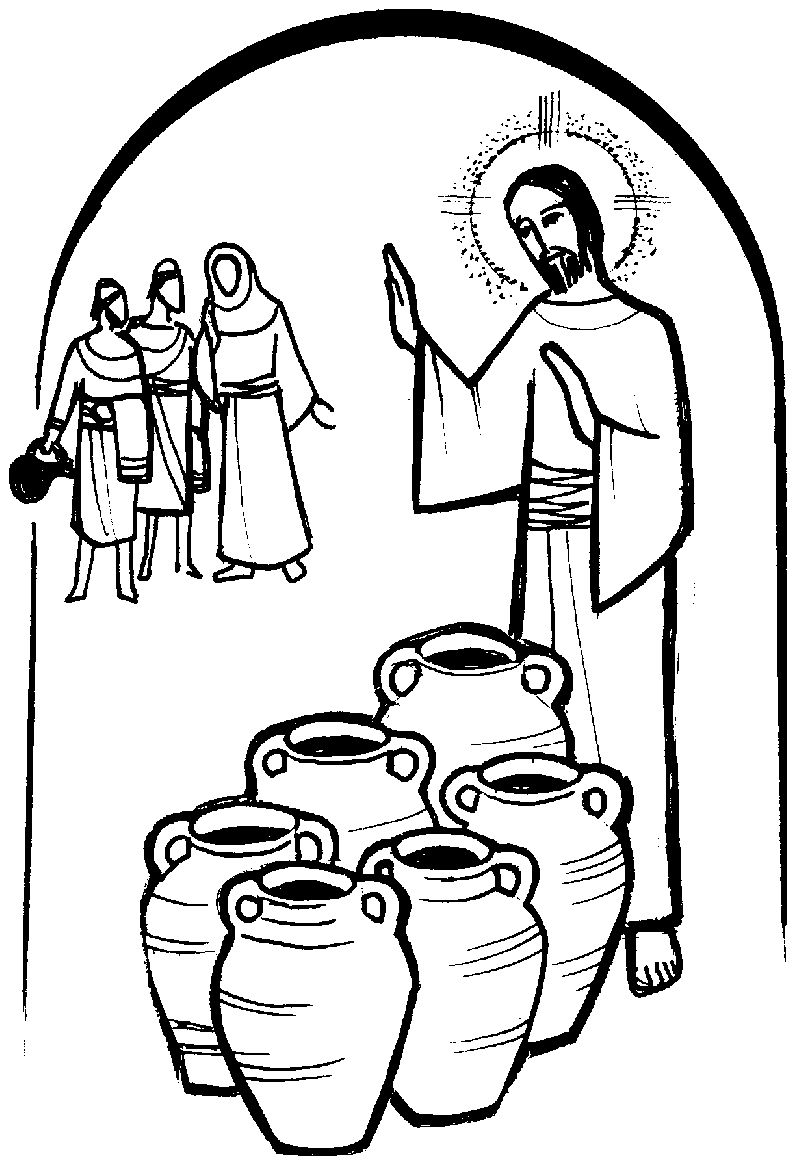2nd Sunday in Ordinary Time (c)
Sunday 20th January: 2nd Sunday of the Year (c).
The first reading today is from the Prophet Isaiah. In it, God’s relationship with his people is described in terms of a marriage. He is as close to us as a bridegroom to a bride.
Between now and the start of Lent, the second reading is taken from St. Paul’s first letter to the Corinthians. He wrote to them in response to a request for practical guidance. Today’s reading outlines the different gifts needed for the building up of each community. Each member has a gift or several provided by the Spirit to play their part in achieving this.
The story of the wedding feast of Cana repeats the message of the Epiphany and the Baptism of the Lord. In the account of his first miracle, Jesus’ glory was seen by his disciples.
Monday 21st January: Memorial of St. Agnes.
St. Agnes suffered martyrdom at the age of 12 at Rome either in the second half of the third century or, more probably, at the beginning of the fourth. Many of the early Fathers of the Church and especially St. Ambrose and St. Augustine speak about her.
Tuesday 22nd January: Tuesday in the 2nd week of the year.
The author reminds his readers of the promises attaching to their good deeds and encourages them to persevere in the faith, ending, as always, on a note of hope.
In the Gospel, we hear of Jesus horror of hypocrisy. He points out the laws were made to serve people, not the people to serve the laws.
Wednesday 23rd January: Wednesday in the 2nd week of the year.
The author intends to prove the superiority of Christy over the Levitical priests. The whole chapter relates to the vague figure of Melchizedek, a priest to whom Abraham had given obedience. There is no reference anywhere to his birth or death so he is said to live forever. He foreshadows the great high priest, Jesus Christ who is forever.
Jesus again shows his power. The Pharisees needed to know that Jesus promoted the commandments. Faith is the essential characteristic.
Thursday 24th January: Memorial of St. Francis of Sales.
Francis was born near Savoy, France, in 1567. As he grew up, he became very religious and wished to consecrate himself to God. His father was not keen on this but he persisted and after studying law at university, he began his studies for the priesthood and was ordained. He spent much of his time working as a missionary near Lake Geneva. At first, he met a lot of hostility but his determination and excellent preaching bought great numbers into the Church. Later he became a Bishop and was much in demand as a preacher all over France. He set himself to show that the lives of ordinary people who are not priests or religious could and should be made holy. He is patron saint of writers, editors and journalists.
Friday 25th January: Feast of the Conversion of St. Paul.
Today we celebrate an event of great consequence for the life of the Church: the conversion of St. Paul. It was sudden and dramatic. From being a persecutor of the Church, he is transformed into an apostle of Christ. This was a turning point in the life of the early Christian community.
Saturday 26th January: Memorial of St. Timothy and St. Titus.
These were two of St. Paul’s most loyal workers. Timothy was a convert and accompanied Paul on his second missionary journey. He left him at Ephesus and continued his work there. Titus was put in charge of the Church in Crete. Paul wrote two letters to Timothy and one to Titus. These are often referred to the ‘Pastoral Letters.’
